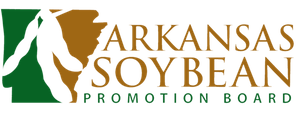Breeding Program with Dr. Mozzoni
Dr. Leandro Mozzoni says the University of Arkansas System Division of Agriculture breeding program is a key project in developing soybean varieties that farmers can actually deploy and use on their farms. This project is where the active breeding for variety development occurs.
"It's where all the fun happens," Dr. Mozzoni said. "We are actually a little excited this year, because we have a new release of indeterminate Group 5. It's a foundation release, so it's a step in the right direction."
Producing almost five bushels more than the previous 5.4 release from the University of Arkansas, Mozzoni sees a lot of value in the Group 5 release as it has an indeterminate trait that can be especially useful to produce further south.
The bulk of the breeding project research is focused on Group 4, with three Group 4 varieties in Arkansas and the Mid-South. Mozzoni says he and his team are right on track witht heir research goals. Staying on track is significant, Mozzoni says, remaining on the project's extensive timeline.
"From the moment a cross is made, it takes ten years to actually finish a lin," Dr. Mozzoni said.
Luckily, Mozzoni and his team were able to utlizie soem resources that had been deployed to Chile, Costa Rica and Puerto Rico, minimizing risk and loss lat year as the U.S. was overhwhelmed by the COVID-19 pandemic.
"In the 2020 season, we were asking ourselves if we would even plant, much less harvest," he said. "We were very blessed that we didn't have all of our eggs in one basket."
Dr. Mozzoni and his team were also able to send a set of lines that were in the most advanced breeding stages to the nematology lab in Hope, Arkansas. The goal is to get those finished lines characterized for each nematode in the Arkansas profile. In the future, Mozzoni hopes to have markers which will allow selections earlier in the breeding program.
The breeding program project usually runs over 4,000 lines per year, but researchers are unable to send that much material to the lab.
"Sending seeds to the lab is tedious and expensive," Mozzoni said. "We can only send lines in the very late stages if we want to stay cost effective."
For producers on the go, catch the Arkansas Soybean Promotion Board's free podcast series. You'll find a podcast on this topic and other checkoff-funded research.
To learn more about the Arkansas Soybean Promotion Board's checkoff-funded research, watch the full Field to Film: Featured Research video series here.
